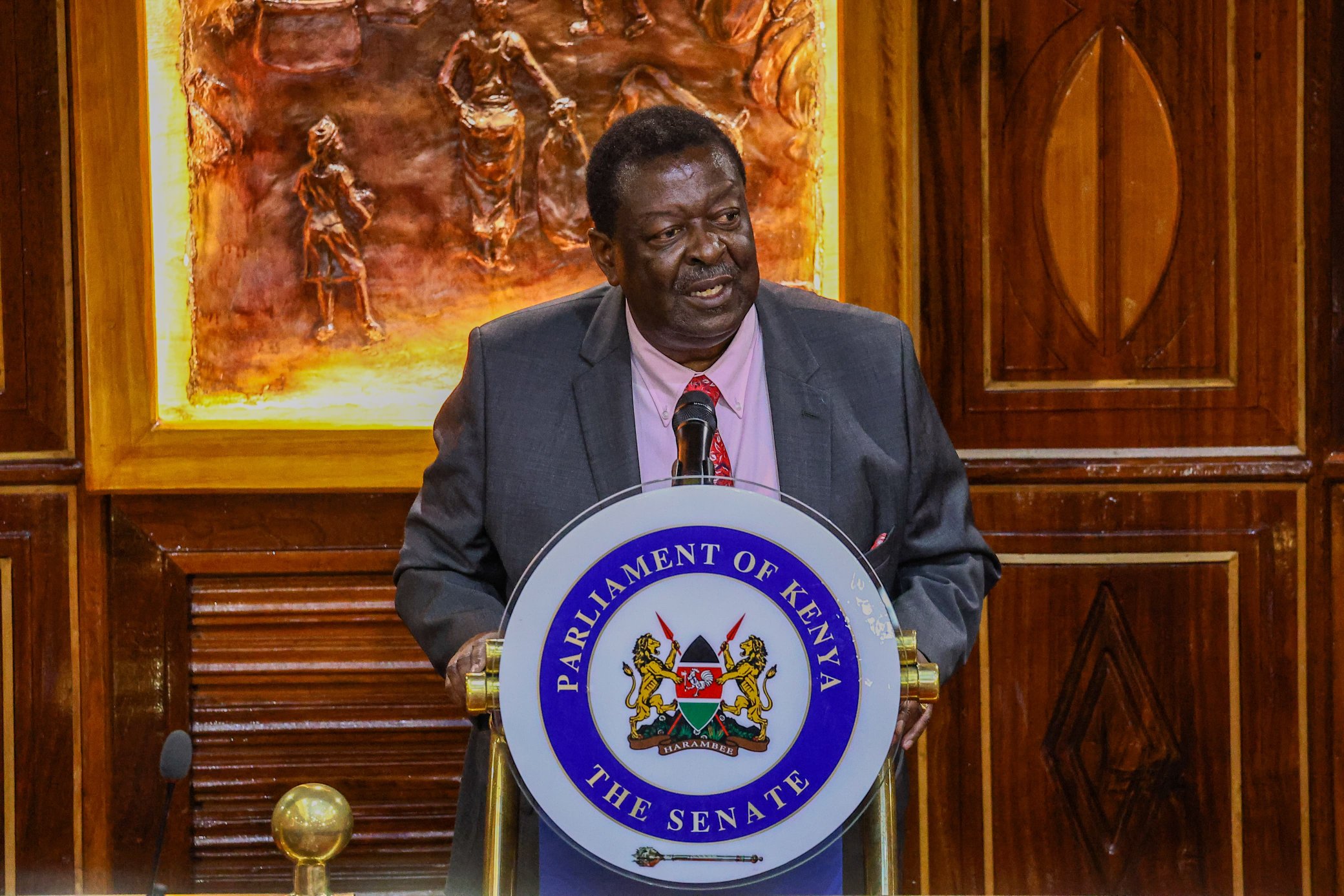The Kenyan government has allocated Ksh 100 million to support security and other agencies in evacuating Kenyans from the Middle East due to the volatile situation in the region.
Prime Cabinet Secretary Musalia Mudavadi made the announcement while addressing the Senate, expressing concern for the 26,000 Kenyans in the affected areas, particularly in Israel and Lebanon, ensuring no one would be left stranded.
Mudavadi disclosed that approximately 1,500 Kenyans in Kuwait have already registered for government support, including evacuation.
He emphasized that the government is keen on responding to the situation promptly, noting that while some Kenyans in Lebanon have expressed comfort remaining for now, they would reach out to the government if the situation worsens.
Speaking on the well-being of Kenyans globally, Mudavadi reiterated the government’s commitment to ensuring their safety and responding quickly when necessary.
He further informed the Senate that the strategy to assist Kenyans in crisis regions is well-advanced, although financial constraints often hinder smooth operations.
The Ministry of Foreign and Diaspora Affairs, he said, is working diligently to ensure no lives are lost and no willing Kenyan is left unattended.
Mudavadi acknowledged the challenges the government faces, particularly from Kenyans who opt to remain hopeful that situations in their host countries will stabilize.
He stressed the government’s efforts to handle each case with utmost care while balancing the unique dilemmas involved.
During Senate question time, Mudavadi, who also serves as the Cabinet Secretary for Foreign and Diaspora Affairs, provided updates on the operations of Kenyan embassies and missions worldwide.
He assured the Senate that the government is fully committed to supporting these missions, ensuring no region is overlooked.
In response to inquiries about staffing at the Kenyan Embassy in Washington, D.C., and the consulates in Los Angeles and New York, Mudavadi explained that the ministry is working on improving staff levels once additional funding is available.
He noted the importance of proper deployment and shared that the newly appointed ambassador to Washington, D.C., had recently reported to duty, with operations continuing smoothly.
Addressing the issue of delayed issuance of identity cards for Kenyans in the U.S., Mudavadi said the missions have enhanced communication on the collection of IDs and passports, working closely with diaspora associations and utilizing direct communication methods like emails, phone calls, and social media.
He added that the government is decentralizing ID processing through Mobile Consular Services, which has already processed over 2,400 identity cards in U.S. cities like Seattle, Atlanta, Minnesota, Dallas, Boston, and Houston, with more outreach planned.
Mudavadi acknowledged that the manual nature of ID processing, along with verification by the National Registration Bureau, contributes to delays, especially in missions with limited staffing.
He also pointed out challenges with the eCitizen platform, where foreign phone numbers are sometimes rejected for the One-Time Password (OTP) verification.
The government is now advising the diaspora to use email for registration and is exploring the possibility of introducing E-SIM cards through local telcos to improve access to services.
In conclusion, Mudavadi revealed that work is underway to draft a session paper on Foreign and Diaspora Affairs, which will be presented to Parliament.
This paper aims to anchor key policies into law and enhance Kenya’s foreign and diaspora engagements, benefiting both the country and Kenyans abroad.





